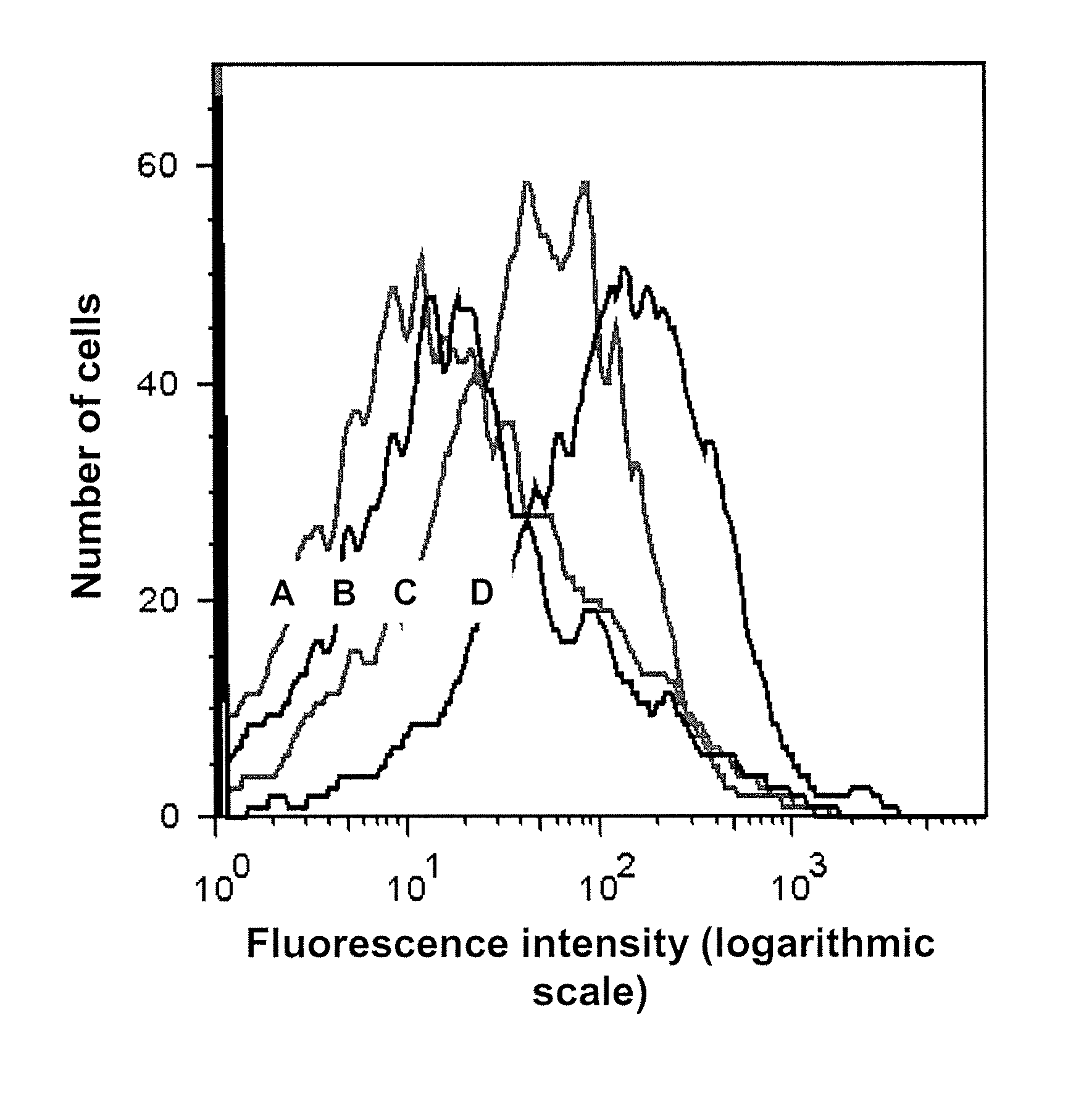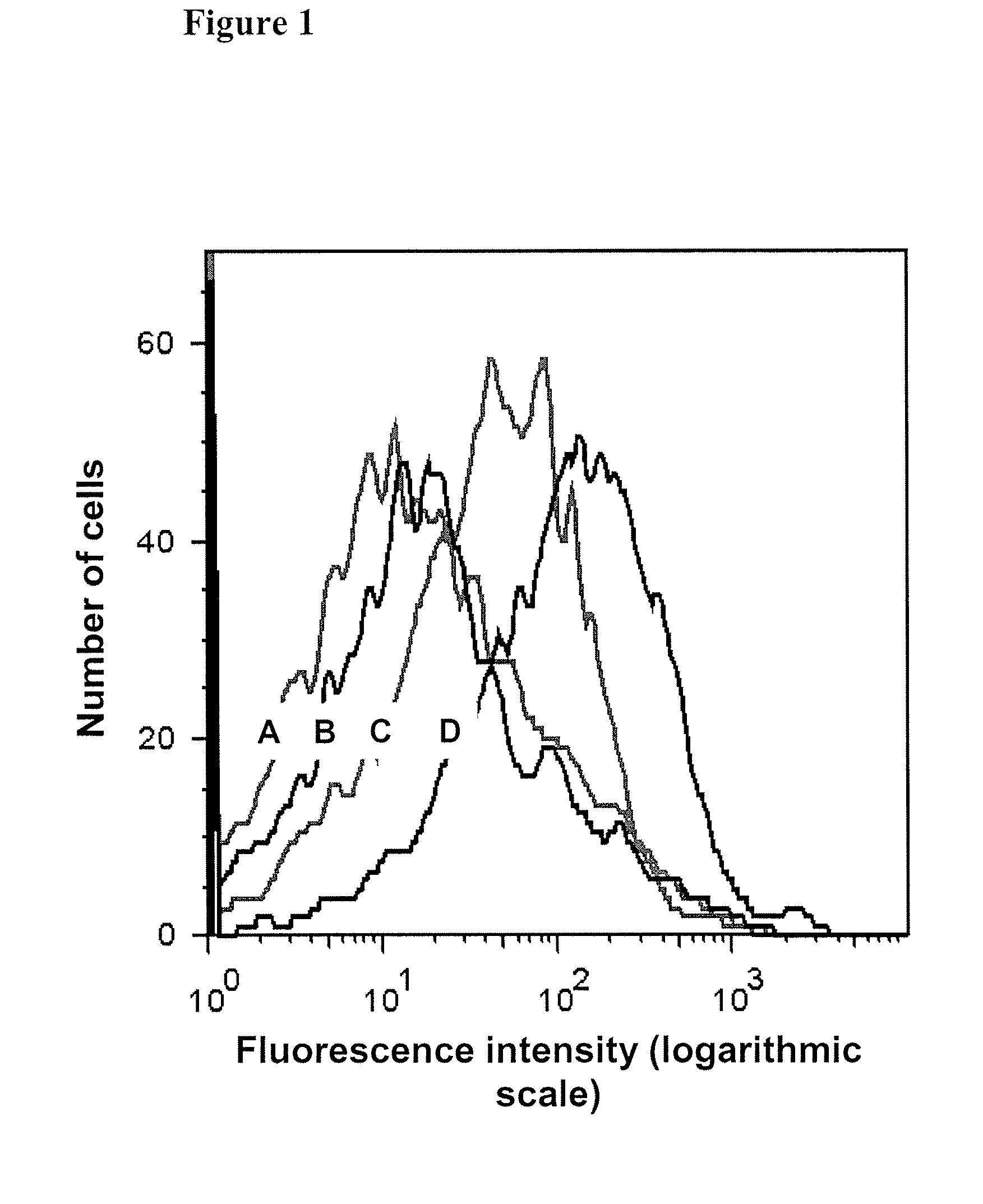Sperm cell separation methods and compositions
- Summary
- Abstract
- Description
- Claims
- Application Information
AI Technical Summary
Benefits of technology
Problems solved by technology
Method used
Image
Examples
examples
Sperm Aptamers Selection Method
[0046]A preferred method of selecting specific aptamers according to the present invention employs a method that utilizes several rounds of incubation of unsorted, sorted X and / or sorted Y sperm cells with a DNA library with a final step of collecting the solution with DNA binders and use it as a template for PCR and for strand separation on streptavidin beads. Applicants have determined that more than 6 rounds of sperm aptamer selection according to the present invention is optimal. Preferably 7 rounds, more preferably 8 rounds and even more preferably 9 rounds of selection are performed as outlined below. However, more than 9 rounds of selection can be performed if necessary to obtain aptamers that bind to the specific target molecule. It should be understood that the protocol described below can vary in temperature, volume, and other parameters that do not effect the outcome of the protocol but that will result in the production of specific aptamers...
PUM
| Property | Measurement | Unit |
|---|---|---|
| Equilibrium | aaaaa | aaaaa |
| Magnetism | aaaaa | aaaaa |
Abstract
Description
Claims
Application Information
 Login to View More
Login to View More - R&D
- Intellectual Property
- Life Sciences
- Materials
- Tech Scout
- Unparalleled Data Quality
- Higher Quality Content
- 60% Fewer Hallucinations
Browse by: Latest US Patents, China's latest patents, Technical Efficacy Thesaurus, Application Domain, Technology Topic, Popular Technical Reports.
© 2025 PatSnap. All rights reserved.Legal|Privacy policy|Modern Slavery Act Transparency Statement|Sitemap|About US| Contact US: help@patsnap.com


